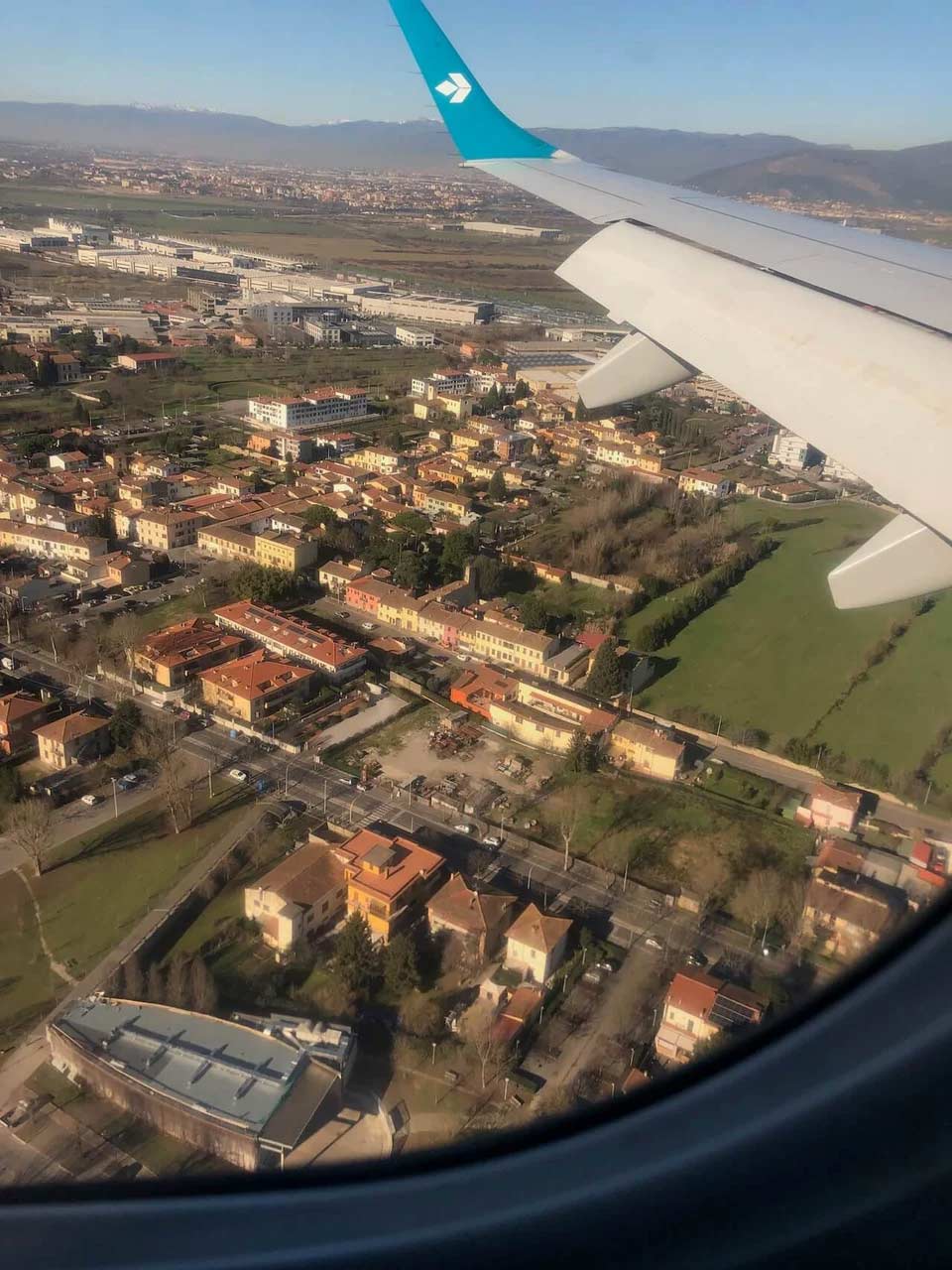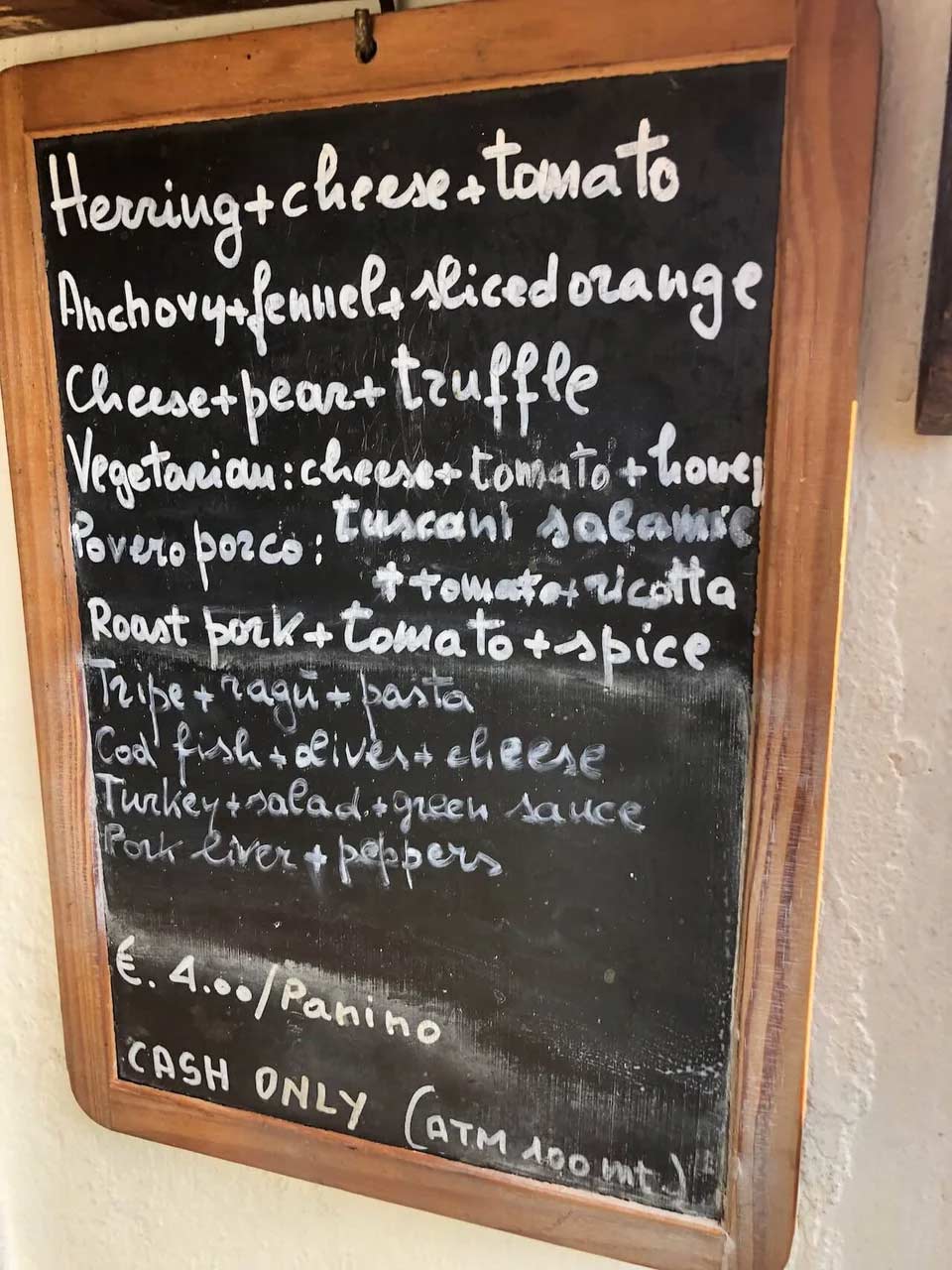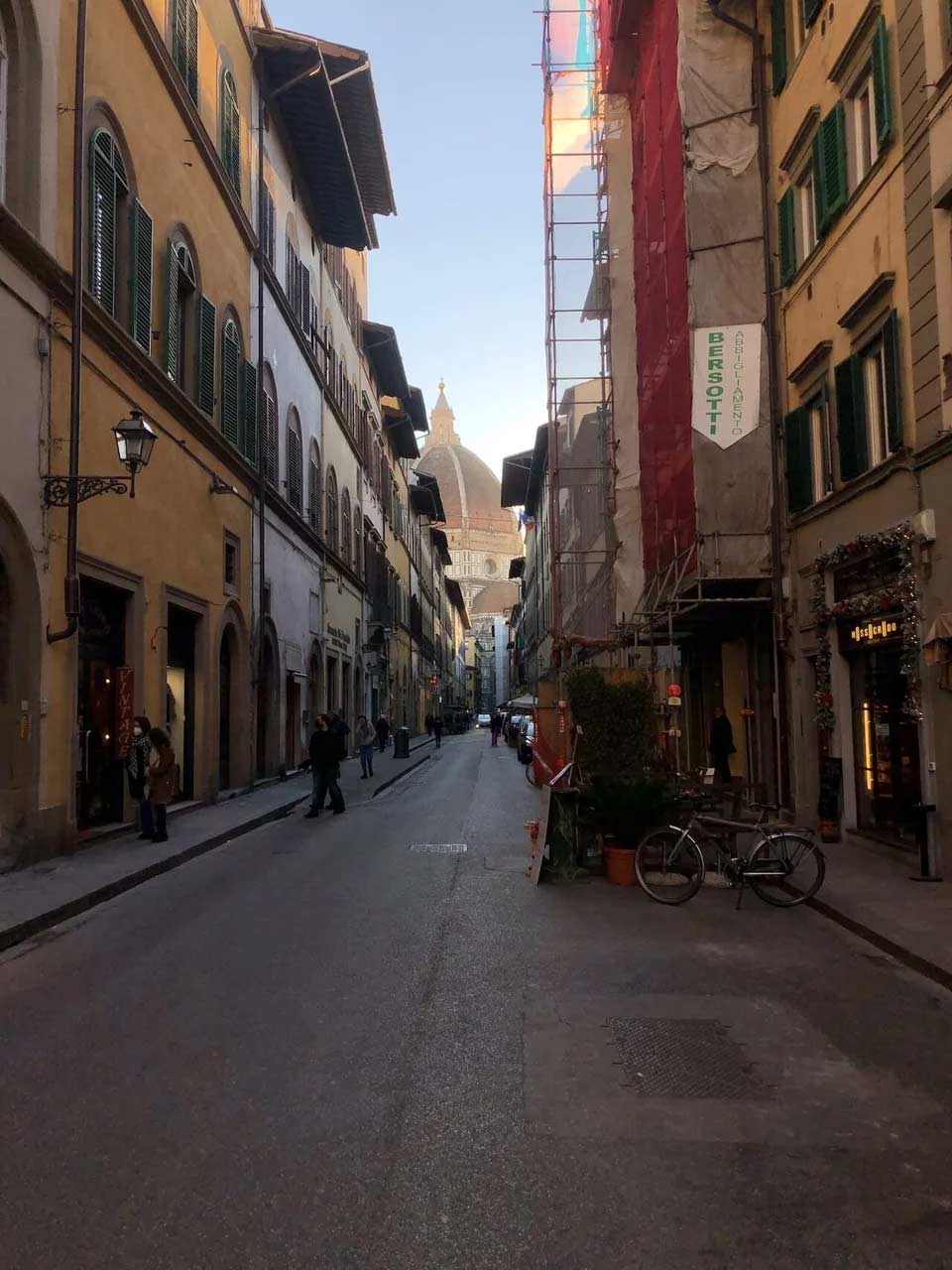It probably wasn't the best idea to opt out of taking a beginner Italian course while studying abroad in Italy, especially considering I have zero prior knowledge of the language and waited until two days before my flight left to download Duolingo. That realization hit especially hard the first few days I was in Florence, and I felt especially guilty when most of my peers had already begun working on their intro to Italian homework after the first day of class whilst I had already ignored that pesky owl long enough to end my meager five-day streak on the language learning app.

Landing in Florence.
I don't think many students go abroad intending to return proficient in their location's native language, and even fewer than the ones who try actually accomplish that, but to me it seemed like it was more the attempt that counted. Students (should) go abroad to immerse themselves into the culture and society of a foreign location and learning the basics of a new language is one of the first stepping stones to doing that. However, despite my lack of traditional classroom learning on the subject, I have found the Italian language and communication with locals to be one of the most interesting dynamics of my first two weeks abroad.
The first thing I realized was that you don't actually need to speak any Italian to get by in Florence, or at least a lot less than I expected. It's not really that surprising, especially seeing how popular it is as a tourist destination, as well as understanding how well western Europe in general caters to the English language. It's extremely convenient for us Americans, but convenience created by linguistic imperialism isn't satisfying at all, and most definitely does not justify avoiding trying to meet the bilingual Florentine halfway (or maybe a quarter...or at least a tenth of the way from our front).

Italian menu board with English translation.
You'll find someone you can communicate with in English at about 95% of the places you'll go, but all that Anglo Saxon chit chat is a bore and will dampen the experience abroad (as well as the local's interest in the conversation) if you don't at least try fitting in a bit of Italian, regardless of how choppy, blunt, or American you're going to sound. All four of my professors made it pretty clear during my first week of classes that if there's one thing Italians can appreciate from tourists, it is them trying to use their language.

Graffiti on the outskirts of the city.
The phrases are an easy place to start since a lot, like "buonasera" and "mamma mia", are somehow already American classics. Expanding past those to some less familiar but still basic phrases, like "arrivederci" or "per favore" will get you going in the right direction in no time. Being able to greet people and say goodbye, while utilizing polite remarks such as a "please" or "thank you", are what seem to be the bare minimum for all, weekend tourists and recently arrived abroad students alike. And although maybe not as common in the US, another thing I have noticed is that hand gestures themselves seem to be a bit more integrated into the Italian language and are especially helpful during COVID. The five-finger pinch is a classic, but also utilizing pointing (at objects, not people!) or mime-type gestures like sipping an imaginary espresso, are extremely helpful in clarifying things said while masked up.

Street view from outside my apartment.
Pairing the basics with universal forms of communication, like the hand gestures and facial expressions, or maybe just eye movement given the current circumstances, will give you a sort of "scavenger" feel of communication. You're not strictly sticking to English, you definitely don't speak Italian, but you can get by while being a little more respectful to the local people while in the more touristy areas. If ever in a similar position as me, I would highly recommend getting out of your linguistic comfort zone to try all of these things and more, without any fear of looking like a fool to the locals. You probably already do, like the rest of us, but that's not necessarily a bad thing, just as long as you're learning and expanding your verbal horizons while doing so.











